.jpg)
"If dirty money is used in election campaigns, democracy is also poisoned." This is one of the opinions expressed by the experts of the Independent Anti-Corruption Advisory Committee (CCIA) during the presentation of the third report with the theme: "Money that Wins Elections: Financing of Political Parties and Electoral Campaigns in Moldova." Alongside these opinions, the experts have put forth 52 recommendations aimed at facilitating the process of achieving objectives related to information disclosure requirements, oversight of financing for election campaigns and political parties, and state financing. The conclusions were formulated during a new meeting of the Club of Investigative Journalists, organized by the Center for Investigative Journalism (CIJM) with the support of GIZ Moldova.
The experts, who have been monitoring the management of money by politicians in electoral campaigns from 2007 until the present, have reached the conclusion that enforcing strict supervision of political financing is practically an impossible task. The primary reason for this challenge is the frequent change of government and political landscape, which leads to a lack of institutions responsible for enforcing regulations and incentives.
CCIA member, Drago Kos, highlighted that the report is the outcome of analyzing 60 political parties involved in electoral campaigns since 2015. The analysis also encompassed 55 reports of electoral campaigns and included nearly 30 interviews with representatives from political parties, state institutions, civil society, and experts.
The expert pointed out that despite some changes made to the electoral code, with the latest package of amendments introduced in December 2022, bringing Moldova's laws closer to the level of several European states, the Republic of Moldova still remains vulnerable when it comes to financing political parties.
"As we conducted the assessment at various stages, one of the most significant problems we identified in the system is the prevalence of group or individual interests, external influence, and the utilization of cash or cryptocurrency financial resources. Regardless of the changes made at the legal and institutional levels, if the implementation process is not closely monitored and prompt results are not seen, then real change will not occur," specified CCIA member Drago Kos.
Consequently, 52 recommendations were formulated, the implementation of which will facilitate achieving objectives related to information disclosure requirements, oversight of financing for electoral campaigns and political parties, and state financing. Among these, 26 recommendations were directed towards the Central Electoral Commission (CEC), 21 towards the Parliament, and another 5 towards other institutions.
During the report's presentation, the experts highlighted the role of presidents of the constituency electoral commissions. With the changes made to the Electoral Code, these officials will also be responsible for monitoring the financing of electoral campaigns and reporting relevant information to the CEC.
"In the regions, the presidents of the district electoral commissions will soon be actively involved, and their mandate will also include the supervision of the financing of electoral campaigns and political parties. The keynote hroughout the report is the need to strengthen the capacity of the CEC as a control body. This is crucial in order to combat all the schemes that have been utilized in recent years by certain political actors. We have already witnessed the CEC assuming an active role in tackling these issues," stated party financing expert Natalia Iuraș.
Natalia Iuraș emphasizes that the desired changes cannot solely depend on the CEC's efforts; the involvement of other institutions is equally vital. Without broader cooperation, the results may not be effective and could be ultimately futile.
"It is a recommendation from the Committee to monitor and reduce cash in the financing of electoral campaigns and political parties. Another equally important recommendation is the strengthening of state structures to detect these schemes or attempts at illegal financing of election campaigns in a timely and efficient manner. In the case of the upcoming general local elections, where there will be, as assumed, at least 55 thousand candidates, this places an enormous burden on the shoulders of the CEC. However, not only the CEC is responsible for vigilance and enhancing its capabilities. The Ministry of the Interior, the Police, the Anticorruption Prosecutor's Office, the Internal Security Service, and the National Anticorruption Center, all have a crucial role to play. If they genuinely aim to work towards a more transparent and cleaner system, then the responsibility lies in their hands," commented Iuraș.
In addition to presenting the report, the CCIA will monitor the implementation of the recommendations' outcomes.
We specify that the CCIA is an independent structure composed of international and national experts, established in June 2021 by presidential decree. The CCIA's mission is to analyze the systemic problems of grand corruption affecting state institutions and enhance their capacity to implement anti-corruption measures. The next report will focus on high-level corruption in state-owned enterprises.
Textele de pe pagina web a Centrului de Investigații Jurnalistice www.anticoruptie.md sunt realizate de jurnaliști, cu respectarea normelor deontologice și sunt protejate de dreptul de autor. Preluarea textelor știrilor și a investigațiilor jurnalistice se realizează în limita maximă de 500 de semne. În mod obligatoriu, în cazul paginilor web (portaluri, agenții, instituţii media sau bloguri) trebuie indicat şi linkul direct la articolul preluat de pe www.anticoruptie.md în primul alineat, iar în cazul posturilor de radio și TV – se citează obligatoriu sursa.
Preluarea integrală a textelor se poate realiza doar în condiţiile unui acord prealabil semnat cu Centrul de Investigații Jurnalistice.
Donors:
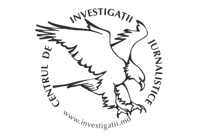
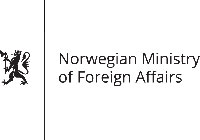

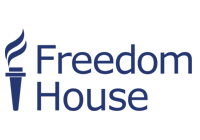
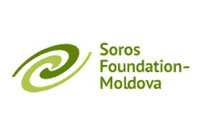
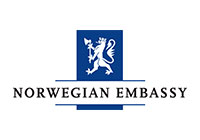
Partners:









